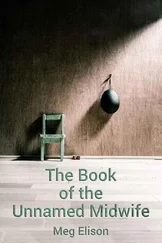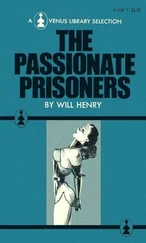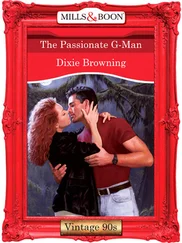“It is exhaustion, sir. You do too much. This child must not trouble you today.” She tried to shoo the boy away. “Your bride-to-be will scold you.”
“Let him be! The Lord will sustain me in his work. I will accompany the child. I fear it is to a deathbed.”
If only it were, he thought savagely. So many of his problems would be solved. With a brave smile he ushered the ladies from the church. Then he returned to the vestry to draw on a voluminous cloak, and cram a wide-brimmed hat low on his brow.
The boy’s eyes never left him. A child indeed! There was cynicism in that look, and a quick intelligence which, he knew well enough, stemmed from a life of survival on the streets.
He spared no sympathy for the lad. The strong survived, and the weak went under. He’d been lucky. No, that wasn’t true! Luck had played no part in his rise to fame. Say rather that a ruthless streak had helped him climb the ladder to success.
And was he to lose it now? The words of the message burned in his brain like letters of fire.
“‘My friend seen your notice in the paper, Charlie. Time yore pore old mother had a share. The boy will fetch you to me. Best come, or you’ll be sorry.’”
It was unsigned, but no signature was needed. The letter was authentic. Only his mother had ever called him Charlie.
“Is it far?” He spat out the question to the boy.
“Not far. I allus walks it, rain or shine.” The child inspected him with critical eyes. “Best hide that ticker, guv’nor, and the chain. You’ll lose it, certain sure.”
The preacher said nothing. He never walked abroad without his knife, a long and narrow blade, honed to razor sharpness. As a child, he’d learned to take care of himself. His lips drew back in a snarl. He was more than a match for any ruffian.
Now anger threatened to choke him. It was sheer ill-luck that had revealed his whereabouts. The Gazette, which had carried the announcement of his betrothal, was unlikely to fall into his mother’s hands. In any case, she could not read. He’d thought himself safe. Yet some cruel trick of fate had given her a friend who was sharper than herself.
He glanced about him, and was not surprised to find that he was being led towards the parish of St Giles. He knew the area well, but he had not thought to enter it again.
Preoccupied with the scarce-veiled threat contained in the message, he was unaware that he was being followed. Even so, he pulled his cloak close, sinking the lower part of his face deep within its folds. Then he glanced about him before he entered the maze of alleys which led far into that part of London known as “The Rookery.”
Behind him, Dan prepared to follow, but his way was blocked by a thick-set individual wearing a slouch hat and a rough jacket out-at-elbows.
“Not in there, sir, if you please! You wouldn’t come out alive.”
Dan stared at the man. He was an unprepossessing individual. His broken nose and battered ears suggested a previous career as a pugilist. When he smiled his missing teeth confirmed it.
“Out of my way, man!” Dan snapped impatiently. The figure of the Reverend Truscott had already disappeared.
“Now, sir, you wouldn’t want me to plant you a facer, as I must do if you intend to be a foolish gentleman? I has my orders from his lordship…”
“Who are you?”
“A Redbreast, sir.”
“You mean you are a Bow Street Runner?”
The man threw his eyes to heaven, and dragged Dan into a doorway. “Not so loud!” he begged. “You’ll get my throat slit.”
“I’ll go with you.”
“No, you won’t, young sir. You’ll slow me down. This ain’t the place for you. Now be a good gentleman, and leave this job to me.” His tone was respectful, but extremely firm.
Dan thought of pushing past him, but the Runner was already on his toes, ready for any sudden move. “We’re wasting time,” he said significantly.
“Then I’ll wait for you here.”
“Best go back to Mount Street, sir. I may be some time.” He turned quickly and disappeared into an alley way.
Wild with frustration, Dan retraced his steps. The delay had lost him his quarry.
Damn Sebastian! Why must he always be one step ahead? Then common sense returned. At least his lordship had wasted no time in setting enquiries afoot. The Runner had seemed competent enough. His very appearance would make him inconspicuous in that nefarious area.
Dan himself was unarmed. It hadn’t occurred to him to carry a weapon. Now, on reflection, he knew that the Runner had been right to stop him.
Always a poor parish, in the previous century the Church Lane rookery had reached the depths of squalor with its population of hawkers, beggars and thieves. Every fourth building was a gin shop, where the verminous inhabitants could drink themselves into oblivion for a copper or two. Stupefied with liquor, they could forget the filthy decaying lodging houses in which they lived under wretched conditions.
The narrow warrens and dimly lit courts had always attracted a transient population. Overcrowding was rife, and it was easy enough for the worst of criminals to cover their tracks, hiding in perfect safety among the teeming masses. They issued forth only to rob the unwary, and murder was a commonplace.
Dan shuddered. He didn’t lack courage, but, unarmed, he’d be no match for a mob. He’d been a fool to think of entering that slum alone. His very appearance made him a tempting target. An attack might, at best, have left him injured. He could be of no possible service to Judith then.
Meantime, the Reverend Charles Truscott had penetrated to the very heart of the thieves’ den. As a child he’d grown accustomed to the sight of the tumbledown hovels, the piles of rotting garbage in the streets, and the all-pervading stench.
Now he had grown fastidious, and the smell which assailed his nostrils made him want to gag. Then his guide pushed open a door which swung drunkenly on its broken hinges, and beckoned him inside.
“Up there!” The boy jerked a thumb towards a rickety flight of stairs and vanished.
The preacher found that his stomach was churning, and he could taste bile in his throat. He was tempted to turn and flee, but he dared not risk the loss of all that had been so hard-won.
He schooled his features into an expression of smooth benevolence, mounted the stairs, and knocked at the door which faced him.
It swung open at his touch, and for a moment he thought the room was empty. He looked about him in disgust. He’d seen squalor in his time, but this was beyond all. Flies swarmed over a broken bowl of half-eaten food, and looking down, he saw that they had laid their eggs. The place was bare, except for a single chair without a back, and a battered wooden crate. A heap of rags lay upon the floor, but there was neither bed nor mattress.
“Well, Charlie, how do you like it? A regular palace, ain’t it?” A face peered out at him from beneath the heap of rags.
The preacher stared at his mother without affection.
“What are you doing here?” he asked. “I thought you’d be long gone.”
“In a wooden box? That would have suited you…”
He was in full agreement with this sentiment, but he must not antagonise her.
“I meant only that I thought you would have found a better place.”
“Ho, yus? Look at me, Charlie!” With a swift movement she thrust aside the rags, and staggered to her feet. He was aware of the strong smell of gin.
“You’re drunk,” he accused.
“Drunk for a penny, dead drunk for twopence,” she jeered. “Well, son, how would you like to see me on a stage?” She thrust her face so close to his that the stench was overpowering.
He hadn’t seen her for years, and now the raddled features shocked him. Nellie Truscott had been a beauty. Her looks were all she had had to offer in the marketplace. Now she was painfully thin, her hair grey and unkempt, and her face bloated with excess.
Читать дальше












